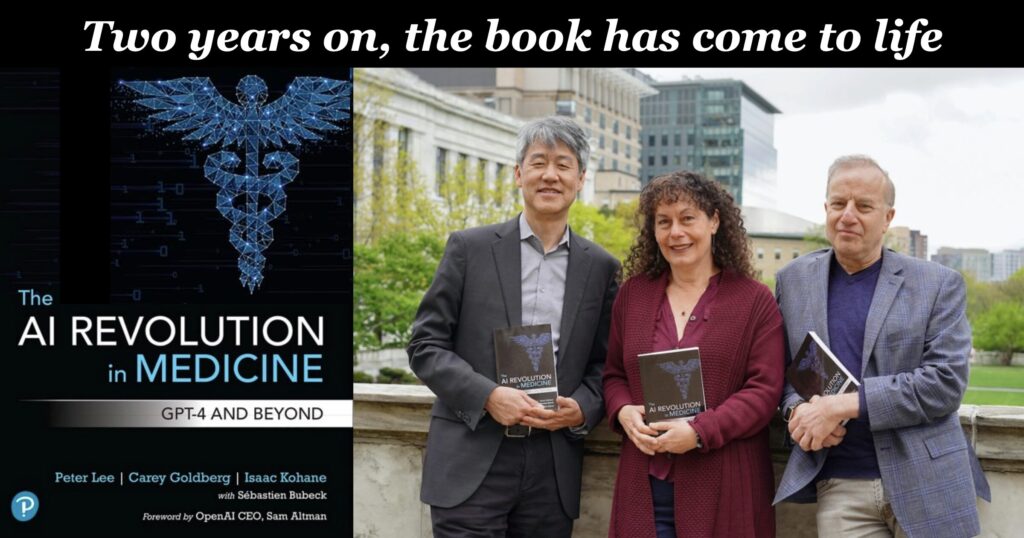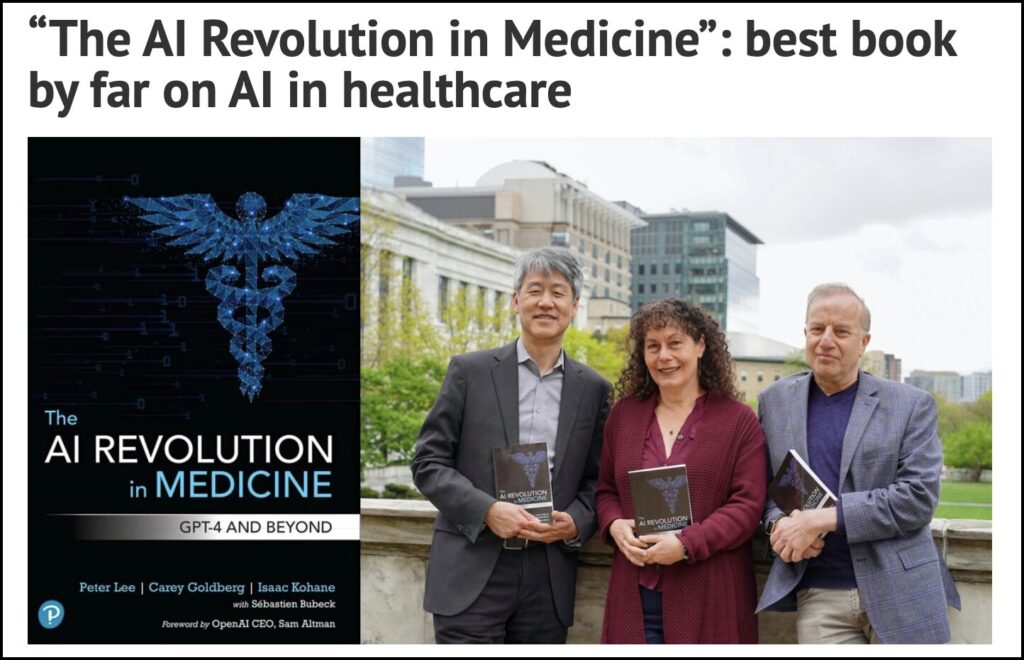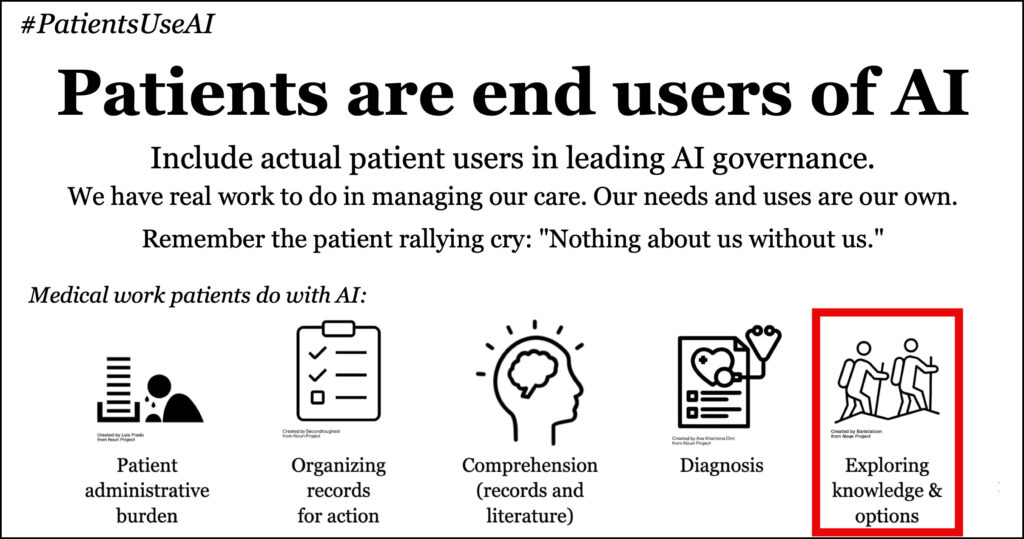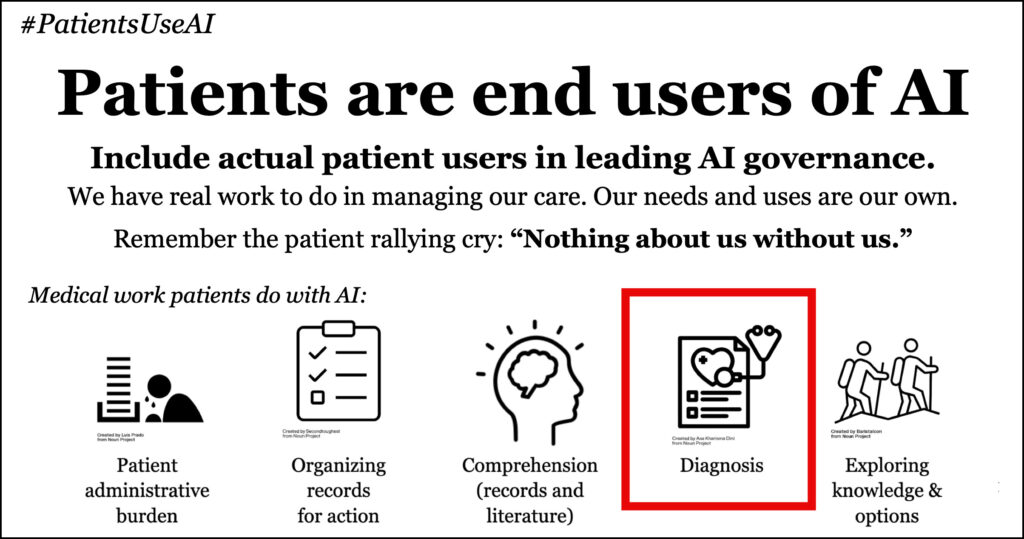
When The AI Revolution in Medicine came out in 2023, I called it the best book I’d seen on AI in healthcare, because it resonated deeply with realities I’d heard in thousands of conversations at hundreds of conferences. Today we can say with confidence that co-authors Peter Lee, Carey Goldberg, and Zak Kohane correctly anticipated not just the scientific impact, but the human and institutional realities of what would unfold when generative AI entered medical practice.
And the impact of patients using it.
[Read more…]




